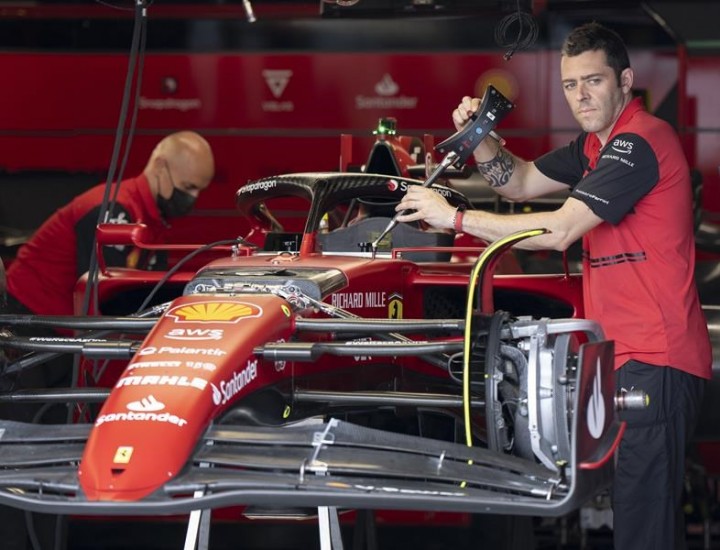MONTREAL — For racing fans in downtown Montreal checking out luxury cars and enjoying the celebrationsaround the return of the Canadian Grand Prix, this weekend could not come soon enough.
“It feels like 2019, coming back to normal,” said Alfredo Monsivais, a Montreal resident who was admiring a green Alfa Romeo on Peel Street Thursday afternoon.
The race on Sunday will be the first Grand Prix in Montreal in three years after two pandemic-related cancellations.
The days around the race weekend have always been special, said Benoit Dessureault, co-owner of the Old Montreal restaurant Chez Delmo. After Montreal’s long winters, the race marks the return of summer activities.
“It’s almost like waking up after hibernation,” he said Thursday. “In comes this festive crowd, well-dressed, in a party mood, with money to spend saying, ‘Wake up Montreal, it’s time to party.’”
The race is also good for business, he said. On a typical night, his 60-seat restaurant will serve around 70 customers; on the Thursday, Friday and Saturday before the Grand Prix, he serves around 150 people a night.
“The average per-plate is higher, there’s more champagne, there’s more alcohol consumption, there’s more pricey products, wine, etc. It’s the second-biggest sales night after New Year’s Eve,” he said.
The return of the race, the only Canadian stop on the Formula One circuit, has the city’s hotel owners “very excited” after two very difficult years, said Jean-Sébastien Boudreault, head of the Hotel Association of Greater Montreal.
“There were months where we had occupancy rates around five per cent,” he said Thursday. “It was extremely difficult for our hoteliers.”
This weekend, he said, hotel occupancy rates are around 96 per cent — with prices averaging around $500 a night.
“The hotels are full, so I think the hoteliers are pleased. They’ll have a lot of work to do this weekend, but everyone is happy to see that life is resuming, that the pandemic appears to be behind us,” he said.
The Grand Prix is one of the busiest times for the hotel industry, alongside the first weekend of the Montreal International Jazz Festival and the Osheaga music festival.
The party does come at a cost to taxpayers. In 2017, the municipal, provincial and federal governments said they would spend $98.2 million to keep the race in Montreal until 2029. That deal was extended in 2021, with the federal and provincial governments promising another $51 million to keep the race in the city until 2031.
Moshe Lander, who teaches economics at Montreal’s Concordia University, said that while the Grand Prix is a “great event,” he thinks its economic benefits are overstated.
While the race may provide a boost to certain businesses, it’s relatively small in terms of the city’s overall economy, he said.
“If the F1 weren’t here, it’s not like no tourists would come to Montreal,” he said Thursday. “It would just be a different set of tourists.”
Hotels are always busy in Montreal in the summer, he said, meaning that when tourists come for the F1, they’re just displacing other tourists who would be visiting the city for its art or culture.
Stephannie Urrutia, who was out on Crescent Street in downtown Montreal with her mother, Ingrid Estrada — both of them dressed in matching Ferrari racing team shirts — said she’s happy to see people out and to see the return of a sport they both enjoy.
“It’s really great to have this after a pandemic,” she said.
This report by The Canadian Press was first published June 17, 2022.
Jacob Serebrin, The Canadian Press
